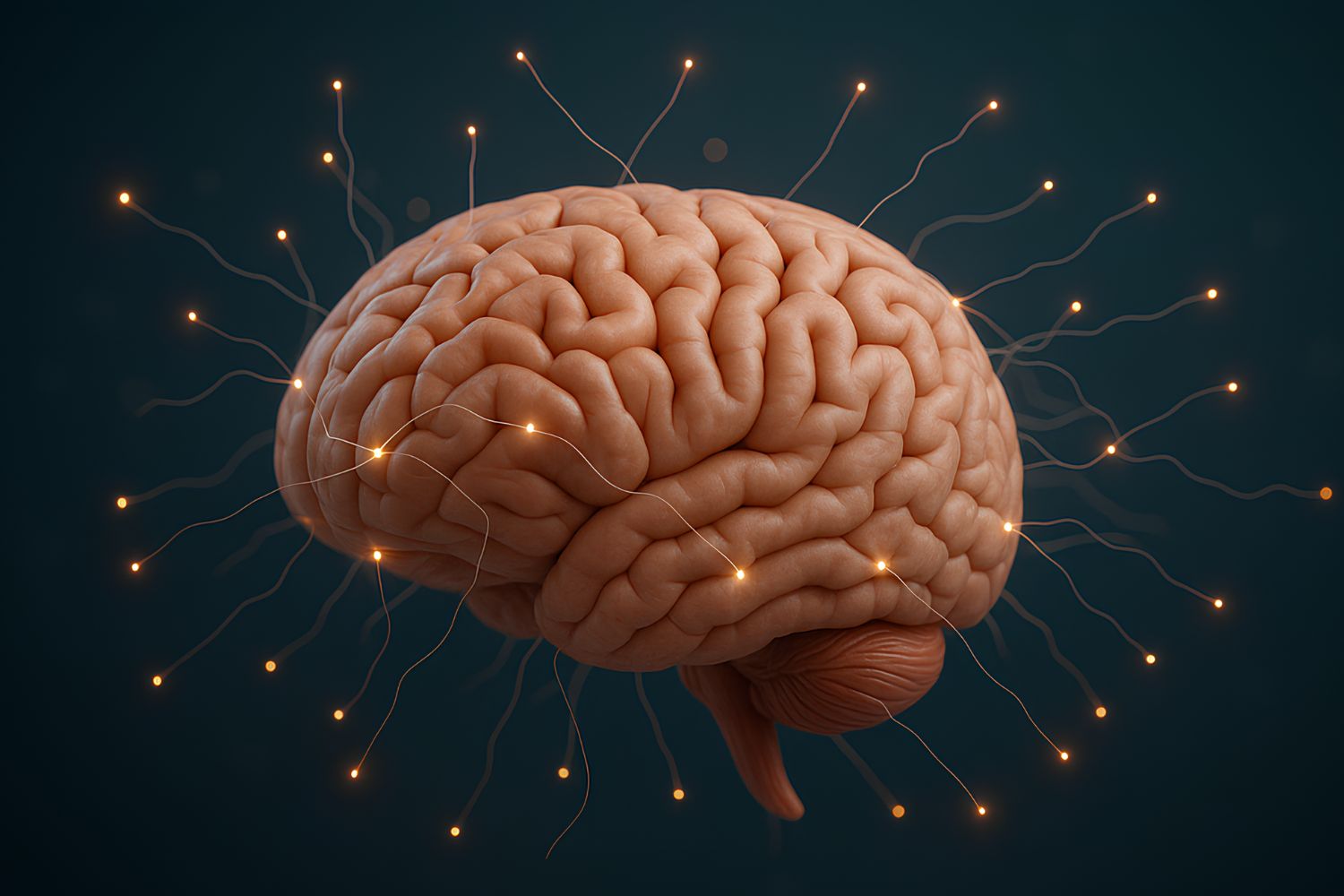
How our brains change during peri/menopause (and what you can do about it)
From hot flashes and weight gain to the oh-crap-I-might-not-make-it-to-the-bathroom episodes, many peri/menopausal marks come from the great exit of estrogen. This dramatic hormonal drop affects our bodies beyond commonly known symptoms, however: Estrogen — or lack thereof — plays a key role in how our brains regulate behavior, cognitive function, and neuronal health.
Neuroscientist Lisa Mosconi likens estrogen to an orchestra conductor in our brains. “When it withdraws after menopause, the brain keeps going, the orchestra keeps singing, but the tune is not quite the same, and many women can feel the changes.”
Mosconi and her colleagues have been conducting brain imaging studies of women — before, during, and after menopause — that reveal major physical changes in structure, connectivity, and energy metabolism.
Changes in the brain during perimenopause and menopause
These positron emission tomography (PET) scans show brain metabolic activity before and after the transition to menopause. Brighter (red to yellow) colors indicate more energy, and darker (green) colors indicate less energy. The “after” scan looks “greener,” reflecting reduced brain energy levels. (Lisa Mosconi/Weill Cornell Medicine)
Brain volume
One of the most noticeable changes in the brain during menopause is a decrease in volume. This shrinkage begins in the frontal cortex, which is responsible for higher-level functions such as planning, decision-making, and impulse control. Shrinkage also occurs in the hippocampus, which is involved in memory consolidation and learning.
Brain connectivity
The connections between different brain regions also change during midlife. Some connections become stronger, while others become weaker. These changes can affect a variety of cognitive functions, such as attention, memory, and multitasking — hello, brain fog!
Neurotransmitter activity
Neurotransmitters are chemicals that allow brain cells to communicate with each other. The levels of certain neurotransmitters, such as dopamine and serotonin, decline during midlife. This can lead to changes in mood, sleep, and appetite.
Cognitive function
The changes in brain volume, connectivity, and neurotransmitter activity during midlife can affect cognitive function. Not everyone experiences a decline in cognitive function during menopause. The factors that contribute to cognitive decline during midlife are not fully understood, but they may include genetics, lifestyle, and stress.
Brain plasticity
Despite the changes that occur in the brain during midlife, the brain remains capable of change and adaptation. This process, known as brain plasticity, allows us to learn new things and adjust to new experiences. Brain plasticity can help to offset some of the cognitive changes that occur during midlife.

What you can do about these changes
A number of lifestyle factors can help to protect your brain throughout midlife and promote healthy aging. Experts agree that a combination of a healthy lifestyle and pharmaceutical interventions, when needed, may lead to an easier transition into menopause.
Lifestyle factors include:
- Exercise: Regular exercise has been shown to improve cognitive function and reduce the risk of dementia.
- Diet: Eating a healthy diet that is rich in fruits, vegetables, and whole grains can help prevent damage.
- Stress: Chronic stress can damage the brain and increase the risk of cognitive decline.
- Sleep: Getting enough sleep is essential for brain health.
Women may opt for menopausal hormone therapy, which uses estrogen or estrogen plus a progestogen to treat hot flashes, night sweats and other symptoms caused by reduced hormone levels.
Whether hormone therapy may help with cognition, however, still needs more research. A 2010 study of 5,504 postmenopausal women found that, compared with women who were never on hormone therapy, those taking it only in midlife, around age 49, had a 26 percent decreased risk of developing dementia, while those taking it only in late life, about 76, had a 48 percent increased risk.
Ultimately, researchers don’t know if there is a sure way to prevent, stop, or reverse the changes that occur in the brain during menopause, but at least some may be temporary. When Mosconi and her colleagues followed up with participants two years later, they found that metabolic activity tends to stabilize in some regions of the brain, and that gray matter volume can rebound for some women after menopause — but not all. More research is needed to better understand when these changes are permanent and when they are temporary.



